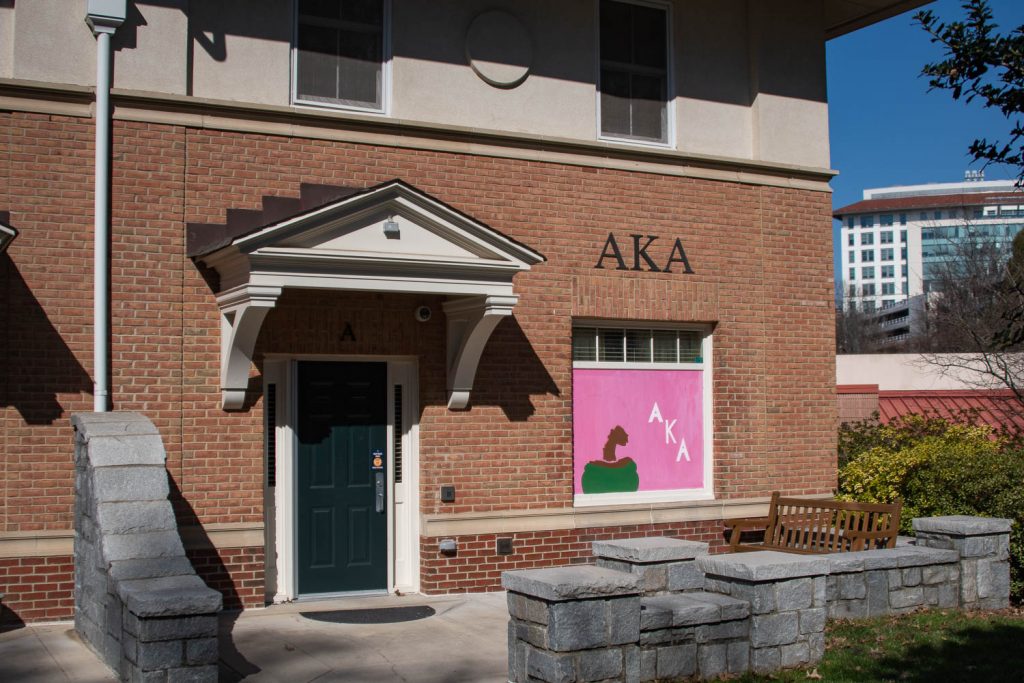Following its inception in the 1700s, Greek Life has been an essential part of campuses nationwide. The tradition, however, is tainted with racism and exclusivity, among many of the other issues that have been brought to the forefront in recent years.
Greek Letter organizations included racial bans in their constitutions well into the 1960s, and even as more Black, Indigenous, and People of Color (BIPOC) were admitted into educational institutions, historically white fraternities and sororities continued to exclude them.
It wasn’t until 1930 when a group of sixteen students at Howard University founded a new brand of fraternities and sororities: the National Pan-Hellenic Council (NPHC), the governing body of traditionally African American fraternities and sororities.
With the goal of assisting universities across the nation understand the histories and unique priorities of its Black students, the NPHC has supported the efforts of civil rights movements in the 1960s and has continued to provide service and stewardship to their communities.
“We’re trying to voice a message and educate people,” said President of Delta Sigma Theta Sorority, Inc. (DST) Amala Ozumba (22C), speaking on the core values of her chapter. “We also want it to be a space where students and faculty can share their own experiences and educate each other.”
Emory is home to six of the nine historically Black sororities and fraternities that comprise the NPHC. The first Black Greek life organizations at Emory — Alpha Kappa Alpha Sorority, Inc. (AKA) and the Alpha Phi Alpha Fraternity, Inc (APA) — were chartered in the 1970s, NPHC adviser Kriskumar Singh told the Wheel.
DST is one of Emory University’s Black sororities and fraternities that have left their mark on the Emory community through signature events like Phi Beta Sigma Fraternity, Inc.’s (PBS) Black History Month Instagram campaign, which showcased a range of influential men each day of February, as well as ongoing recruitment and community service.
Emory NPHC’s community is small, Singh noted. For example, Zeta Phi Beta is composed of only two members. However, he said that has allowed Black sororities and fraternities to foster connections by creating spaces on campus that allow students to find peers with similar interests.
Many prominent figures nationwide today, from Vice President Kamala Harris, who is a member of AKA at Howard University (D.C.), to athlete Colin Kaepernick, who is a member of Kappa Alpha Psi Fraternity, Inc. at University of Nevada, are alumni of NPHC organizations.
Whenever these individuals find success, members of their organization rejoice, Singh noted.
“Even if you’re not a member of that person’s organization, the sense of belonging created by being in the NPHC makes you feel as if you’ve also won,” Singh wrote. “Representation is more important than folks understand, and to see someone who shares similar values as you winning on screen, on the field or an election, can often feel like a win for us.”
Singh added that he encourages students to transition into a graduate or alumni chapter upon graduating Emory: “No matter if you relocate to another state or a different city in Georgia, or possibly another country, you can meet sisters and brothers of your organization.”

Alpha Kappa Alpha is a historically Black sorority (Natalie Sandlow).
Scholarship and service with Zeta Phi Beta
NPHC Vice President of Marketing and Public Relations and President of the sorority Zeta Phi Beta (ZFB) Joe’l Brock (22C) spoke about her sorority’s focus on scholarship and service.
Zeta Phi Beta’s main initiative is “Zeta’s Helping Other People Excel (through Mind, Body and Spirit),” which creates fundraisers like their annual step show, a form of percussive dance where members perform various stepping techniques.
ZFB, alongside other multicultural organizations, also partners with March of Dimes, an organization dedicated to maternal health and babies. They raise money and collect Pampers, baby supplies, cans and other goods.
“Service is always at the forefront for the wider community and also for the Emory community. We’re just making sure we can provide any need that’s lacking for students,” Brock said.
ZFB is also constitutionally bound to the PBS Fraternity, and is the only Black Greek organization to do so, Brock said. According to their constitution, ZFB is “organized as the sister Greek Letter Sorority to Phi Beta Sigma Fraternity.”
“In the past, before COVID, we used to have cookouts together,” Brock said. “It was called Sigma and Zeta Soul Food Sunday, where members got together, cooked plates of food, and sold that to raise money for their chapter and various charities.”
The PBS fraternity also helped ZFB with their signature HalloZeen step show, where they also competed alongside the sisters to show their support and camaraderie.
“To know that I can call on any of them, and that they are considered my brothers is really important to me,” Brock added. “That family feeling that you get from these two organizations has probably been my favorite part.”
Sisterhood within Alpha Kappa Alpha
NPHC Executive Vice President and AKA President Krysten Nedd (22C) emphasized her chapter’s focus on women’s health and education.
For instance, the sorority has heart health and breast cancer awareness events. It also educates Black high schoolers by offering college admissions and applications assistance. AKA has fundraised for historically Black colleges and universities, often showcasing Black artwork and businesses.
Fellow sorority members have conversations about financial fitness to help women by “elevating them and investing in themselves.”
“We have a global impact target, which focuses on fundraising and getting the word out there about different communities who may be going through financial, economic or environmental struggles,” Nedd said.
Nedd said that her favorite part about her sorority is her bonds with members of her class as well as the newer members.
“It’s just great to see how much they’ve grown as leaders on our campus and just as women in general,” she said.
Alpha Phi Alpha and the Black and Gold Pageant
APA Vice-President Eddy Cabrera Jr. (22C) spearheaded the charge for the annual Miss Black and Gold scholarship pageant this year, which raised money to grant scholarships for four to five Black women at Emory.
According to APA President Matthew Nails (22C), the pageant this past fall was the first in-person occurrence since the pandemic, during which AKA’s Amna Sadig (23C) was crowned as Miss Black and Gold. Past winners include DST’s Kiarra Harris (19Ox, 22C), who won the pageant in Spring 2021.

Alpha Phi Alpha is a historically Black fraternity on Emory University’s campus (Natalie Sandlow).
The pageant aimed to recognize Black women’s impacts within the community and give them space within male-dominated realms. Despite that fraternities are traditionally male-dominated, the women in the pageant are treated as “extended family members” of the organization, Nails said.
APA has also advocated for voter registration, working hands-on with different voter registration locations and creating a Linktree website, created by Cabrera Jr., dedicated to voter registration that Nails said received thousands of views.
Additionally, in March 2021, Nails and NHPC Vice President of Finance Kyle Truevillian (22C) participated in two activist social media campaigns on the Emory NHPC Instagram which highlighted historical Black sorority and fraternity members, such as Cicely Tyson and Alexa Canady.
Nails said that his favorite part about the fraternity is the different perspectives he gained from his brothers.
“Each and every one of them cares so much about our community and inspires the other to strive even further than what they thought they would,” Nails added.
Delta Sigma Theta’s Five-Point Programmatic Thrust
Ozumba, the president of Delta Sigma Theta, said she takes pride in DST’s firm dedication to public service.
Delta Sip, an annual event to introduce DST to new students on campus, allows students to connect to resources and network, according to Singh. In 2019, the theme was “20/20 Vision: Focusing On Your Mission,” where they hosted a motivational speaker and provided a space for students, faculty, and staff to become acquainted with their chapter.
“The point of the program is to help first-years and Oxford continuees have a smooth transition to Emory College, by providing resources and tools for success on campus,” Ozumba said.
Most of DST’s events center around empowering Black women and raise awareness on racial justice issues, Ozumba said. This included a program that brought awareness to sexual assault on college campuses and promoted Emory resources for assault survivors, as well as a series of Instagram posts that sharing facts about how mortality disproportionately affect Black women.
As an international sorority, they hosted a convention last fall that brought together their sisters from countries like South Africa and the Bahamas, where they celebrated their sisterhood and created a space for people to feel comfortable voicing their own opinions.
“It’s one thing to be sisters by paper, but it’s another thing to genuinely care for others,” Ozumba said. “Even after Emory, I still want to be very active within the organization and give back to the community.”
NPHC will host two recruitment events in February, including “Pop-Out Wednesday” on Feb. 16 and a NPHC Convocation on Feb. 19, for students to engage with and learn about each organization.
Ashley Zhu (she/her) (25C) is from Dallas, Texas, majoring in biology and minoring in sociology. She is the vice president of recruitment for the Residence Hall Association, a sophomore advisor for Raoul Hall and a staff writer for the Emory Undergraduate Medical Review. She is involved in cell biology research at the Pallas Lab and is a BIOL 141 Learning Assistant. Zhu enjoys FaceTiming her dog, stalking people's Spotify playlists and listening to classical music in her free time.






